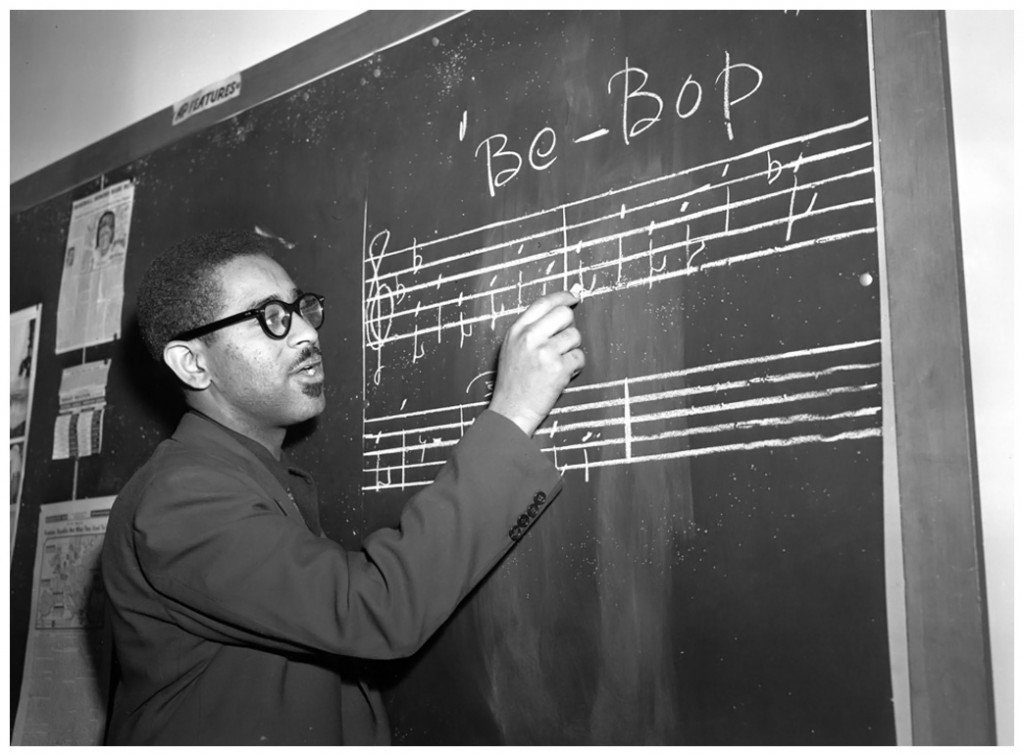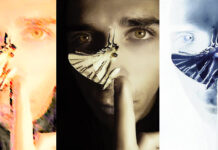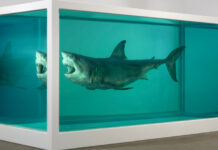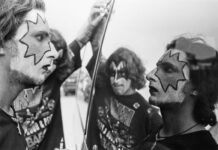
~~~~~~~~~~~~~~~~~~~~~~~~~~~~~~~~~~~~~~~~~~~~~~~~~~
“It’s just music. It’s playing clean and looking for the pretty notes”
Charlie Parker, 1949
~~~~~~~~~~~~~~~
I read for the first time about Charlie Parker’s music in Kerouac’s novels. The beatnik writer was inspired his delirium pace of writing (“this is not writing, this is typing” said Capote) in the dives of New York.
In there, with the saxophone resting on his belly and his eyes dimmed by the dope fixed somewhere, behind people’s heads, and his fingers pressing the keytouches faster than the eye could see, stood the man who played a starring role for the second revolution of jazz – the first one was Louis Armstrong’s job.
It was Charlie Parker a.k.a. “The bird” or “Yardbird”, the man who could blow faster than his shadow.
~~{}~~
His nickname had nothing to do with his playing. One day, as a musician recalls, while on tour with the car they ran over a chicken. Charlie made them go back and pick up the yardbird.
Once they reached the hotel, they gave it to the cook who fried it and served them. That is how he got the name.
~~{}~~
Charlie was born in 1920 in Kansas City which was, back then, the hub of jazz. There were over fifty cabarets that stayed open all day and night long in the black ghetto, while jam-sessions were marathon-like, that is a musician would walk off stage when he got so tired that he could not move his lips anymore.
He was not a wonder boy. He played the saxophone for the first time when he was fourteen years old at the school band. Both of the two conservatories of Kansas had rejected him because he was black (and, as everybody knows, black people do not have a flair for music).
He performed solo for a year and then he got mixed up in the cabarets as semi-professional, but he didn’t quite blow away neither the audience nor the musicians.
At some gig, the drummer Joe Jones waited for the kid to solo, disassembled a cymbal and threw it at his feet (no, not at his head as was mentioned in the film Whiplash, to add a dramatic tone, obviously).
The show came to a halt, Charlie took his saxophone and walked away.
~~{}~~
He spent three months in the country and when he came back a guitarist helped him out to master the chord changes. He started playing with another band and even though he was still far from becoming “The bird”, at least he got no more cymbals thrown at him, it was a good start.
In the dives, Charlie, being just fifteen years old, tried heroin for first time. He tried time and time again to quit; and he did it, only to relapse.
His myth was built upon his self-destructive disposition which included heroin and copious amounts of alcohol. He dissuaded young musicians that idolized him from doing so. “They don’t help me play music” he used to tell them.
~~{}~~
When he was 18 years old, he found himself in New York with his saxophone as his sole baggage. When he got here, he entered Club 65 and asked from the orchestra to play with them.
Billy Eckstine who was on stage recalls: “He was the raggedest guy you could ever imagine. That guy got up and, man, he blew the hell out of that thing. He was blowing so fast that everybody in the house got shocked.”
~~
A year later, in 1939, while he was in a taxi, Parker had an idea.
He said: “I’d been getting bored with the stereotyped changes that were being used all the time at the time, and I kept thinking there’s bound to be something else. I could hear it sometimes but I couldn’t play it. Well, that night I found that by using the higher intervals of a chord as a melody line and backing them with appropriately related changes I could play the thing I’d been hearing.”
And this is how bebop was born, the fast-paced jazz that brought to mind only the atonal music of Schönberg or Stravinsky, to the point that somebody asked Gillespie, the other iconic figure of bebop, if they had listened to Stravinsky.
“The only Stravinsky I know, is a Polish grocer in my neighborhood” he said.
~~{}~~
Contemporary jazz was so revolutionary, that the old guard was blown to smithereens. All the eponymous musicians, excluding Duke Ellington, figured out that if bebop prevailed, they should change, too.
Only a handful of critics accepted it. Bebop “was greeted by the most hostile attitude than any other evolution in jazz, before or after that”.
It was not “music for the masses”. The beatniks and the hipsters (the term has nothing to do with its contemporary meaning) listened to it. The white students listened to it, too. And the musicians. And the Europeans.
~~{}~~
After the war, Parker was already put on a pedestal by the other musicians.
“His technique was simply flawless – as if he was practicing for years. It is hard to grasp that he is the only jazz player that influenced every part of it.”
Parker toured all over America delivering this new music. Dizzy Gillespie, who was more restrained, was under his wing. Miles Davies learned the ropes next to The Bird.
But all the money he earned went straight to heroin. Often, he would doze off during a show or would be late when it came to record.
~~
In 1946, after a lousy recording, he set fire to the hotel he was staying. He got arrested and beaten by the police and ended up in Camarillo State Mental Hospital, where he stayed for six months.
He got out clean but he was drinking oceans of alcohol. When he was not nodding off in the bathroom, he was recording. He put on tape from 1947 till September of 1948 thirty songs that are considered as the cream of the crop in bebop – and generally in jazz.
But “wherever we were, the drug dealers were after us…’I know where you can score good stuff’ they used to tell him and Bird went straight to them”.
~~{}~~
Charlie Parker played his music all over America and Europe. He got married four times and he was partial to white women – a huge scandal in the United States.
He died at the age of 33 (younger than Mozart) in the suite of Baroness Pannonica de Koenigswarter- Rothschild, the famous Rothschild family, which was also a scandal.
His body was taken to the hospital tagged as “John Parker, age 53”.
His death was due to lobar pneumonia and bleeding ulcer, but the coroner that did the autopsy said that his organs were damaged by abuse.
The same night there were graffiti all over Greenwich Village that read “Bird lives!”
~~~~~~~~~~~~~~~~~~~~~~~~
Clint Eastwood was the director of the film “Bird”, with Forest Whitaker as Charlie Parker.
The most important thing in his life was his music.
“He introduced me to Bird and when I heard him playing for the first time I couldn’t believe my ears, because what he was doing was so much different than anybody else and it was plain that his style would take things into other areas”.
~~~~~~~~~~~~~~~~~~~








